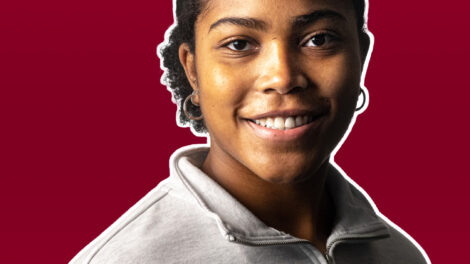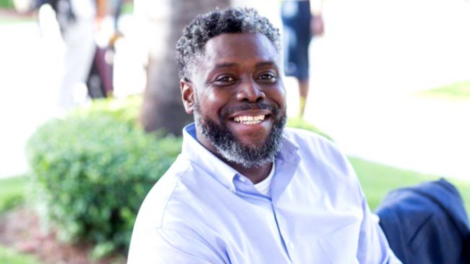Lafayette faculty and staff participate in community conversations in connection with Black Heritage Month and Martin Luther King Jr. Day
In connection with Black Heritage Month and Martin Luther King Jr. Day, Lafayette’s faculty and staff recently shared their expertise and knowledge with students and the community to promote a greater understanding of equity and diversity issues. Though the topics were varied: exploring the outdoors, promoting innovation, understanding health disparities, improving classroom conversations, the following members of the Lafayette community shared a common goal of fostering conversations that instill respect for diversity and inclusiveness.
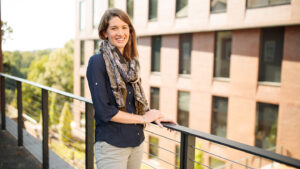
Andrea Armstrong
Andrea Armstrong, assistant professor of environmental science and studies, shared her expertise with community members in a talk “Running in Place: Why Race Matters in Outdoor Recreation Spaces.” Armstrong is an environmental social scientist who has conducted research to better understand how people use outdoor recreation areas. During the virtual event, which was hosted by Lehigh Gap Nature Center, Armstrong led a conversation about why people of color participate in outdoor recreation activities less often than white people, and why people of color reported that they feel less welcome on local recreation trails. “I was pleased to connect with many environmental and recreation professionals in the region who are eager to implement more inclusive programs,” Armstrong says. “It is exciting to strategize how these research findings can be put into action within our communities.”
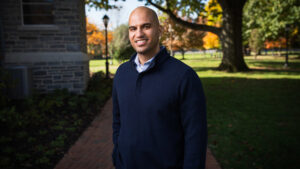
Yusuf Dahl
Yusuf Dahl, Bradbury Dyer III ’64 Director of the Center for Innovation and Entrepreneurship, led a presentation earlier this month for more than 90 worldwide employees of Air Products focused on the role of diversity in driving innovation. Dahl’s presentation highlighted the importance of embracing differences as he spoke about his passion for innovation and how it has driven entrepreneurial efforts to create change. During the presentation, Dahl challenged the audience to reframe challenges as opportunities noting, “innovation depends as much on collective difference as it does on aggregate ability.”
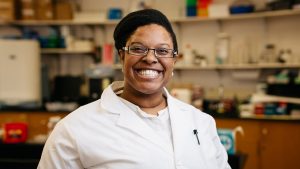
Khadijah Mitchell
Khadijah A. Mitchell, Peter C.S. d’Aubermont, M.D., Scholar of Health and Life Sciences and assistant professor of biology, was invited by the American Lung Association to participate in an educational webinar and panel discussion. She joined other experts to discuss the link between African Americans and lung cancer, as African Americans are more likely to get and die from lung cancer than Americans from European descent, despite lower smoking rates. “The American Lung Association event gave me an opportunity to share my lung cancer health disparities and health equity work on a national stage,” Mitchell says. “It also let me have a conversation with the public. I tell my students that it’s not enough for science to stay in the walls of the lab. It needs to be translated to the community to educate and help others.”
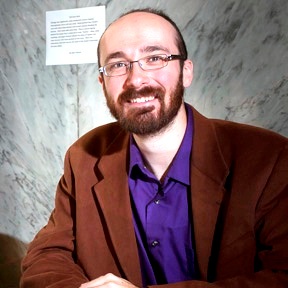
Chris Phillips
In light of the Black Lives Matter movement, anti-racist pedagogies have become increasingly important. Chris Phillips, professor of English and ‘20-’21 Distinguished Teaching Faculty Fellow, recently presented “Contemplating Racial Justice: Mindfulness and Race in the Classroom,” to Lafayette faculty. He shared with his colleagues a set of mindfulness practices that can be utilized both in and out of the classroom to help keep an open mind and to become better listeners as we engage in difficult conversations. “Using our bodies in this very simple way can help reorient our thinking and reorient how we see ourselves in relation to each other,” said Phillips, whose fellowship focused on contemplative pedagogy. “In what context will these practices work? Which are great for classes? Which are better for student leadership meetings? Mindfulness is about a turn inward so that we may reimagine what it is to be connected with other people. It enables sustained activism, better conversations, and better intellectual work.”
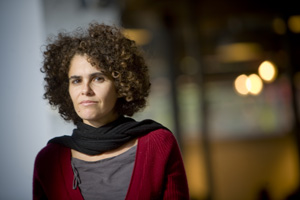
Karina Skvirsky
Karina Aguilera Skirvsky, associate professor of art, was one of the panelists during the Allentown Art Museum’s “Dynamic Conversations: Museums’ Role in Fostering Equitable & Inclusive Communities,” which was part of a weeklong virtual celebration honoring the life of Dr. Martin Luther King, Jr. “Museums are rethinking their roles as public spaces that are accessible to diverse communities. Addressing structural racism is no easy task. It requires diversifying the museums’ board of directors, staff and exhibition programming,” says Skirvsky. “It is also essential for museums to partner with communities of color. Participating in a panel of this nature as an artist, an educator and a member of the Lehigh Valley community was humbling; I appreciated the opportunity to articulate the important role that museums have played in my art practice and how museums can nurture future artists through outreach.”





